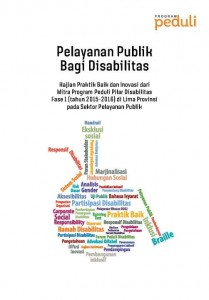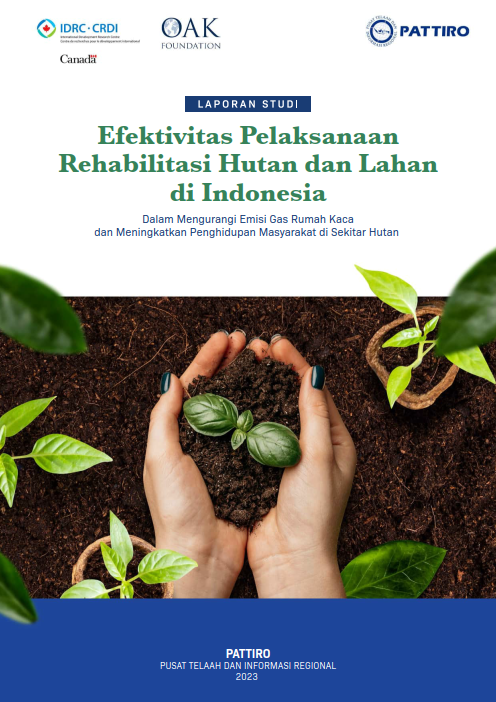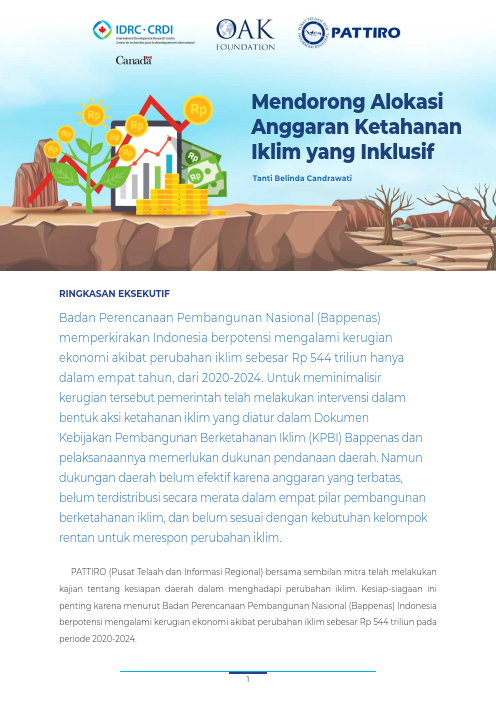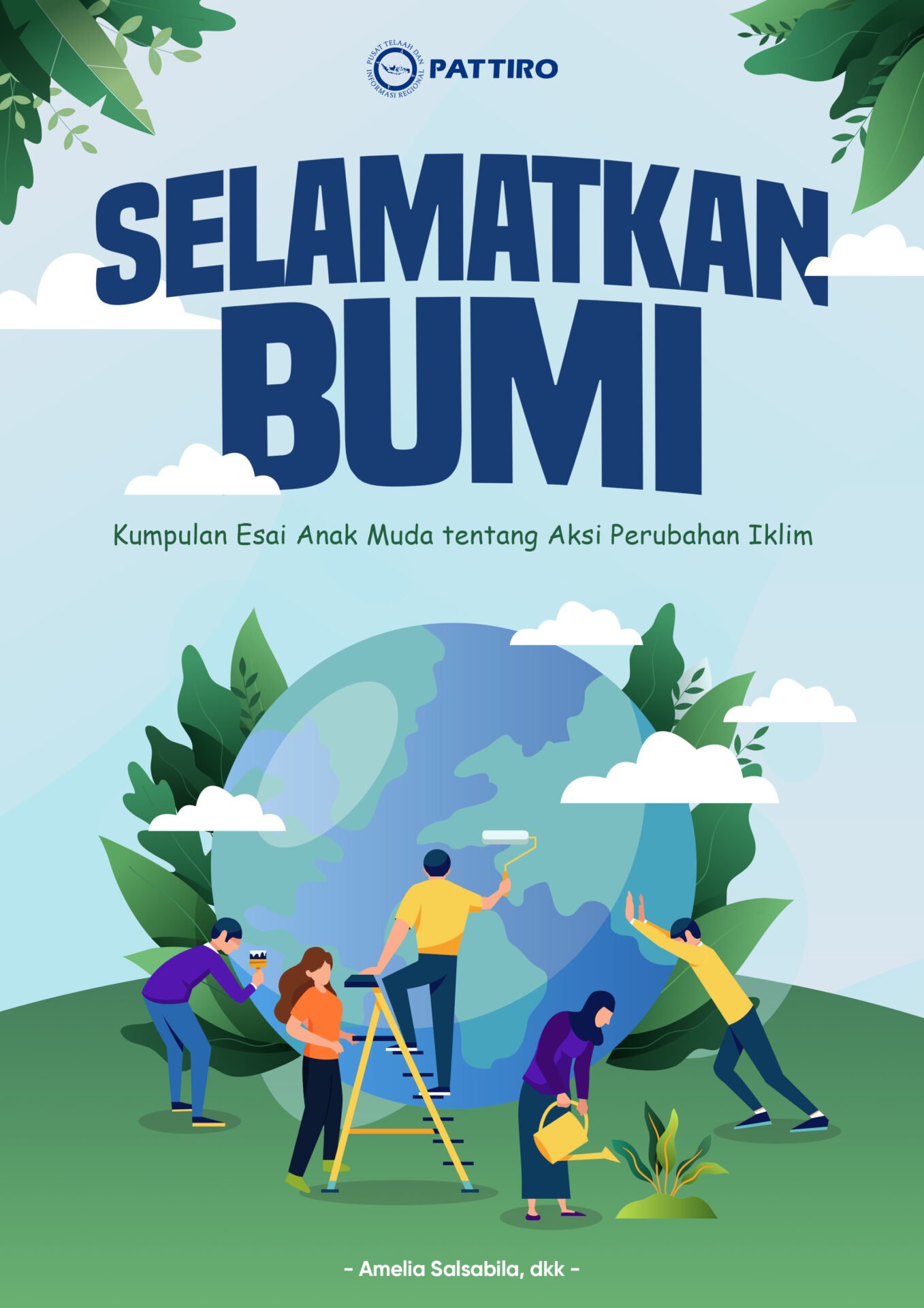 The elaboration of the concept of inclusive development according to the International Disability and Development Consortium (IDDC) is a process to ensure that all marginalized groups can be involved in the development process. The concept seeks to give the right to marginalized groups or people in the development process. In other words, inclusive development seeks to provide access to marginalized people, including persons with disabilities, to be involved in the development process and have access to these development outcomes. The emergence of the inclusive development paradigm is motivated by the development orientation since the 80s, which was too highly dependent on economic development with output in the form of economic growth. Such a development model produces a condition of social deprivation. Social deprivation, according to Townsend (1979), is a condition in which individuals, families and groups in the population can be said to live in poverty when they lack the resources to get food, participate in activities, and have poor quality living conditions and facilities. Their resources are below what is expected of the average individual or family. Compared to in some neighboring countries, inclusive development in Indonesia is far from ideal. According to the World Economic Forum (WEF) in the 2017 Inclusive Growth and Development Index (2017), Indonesia ranks 22nd out of 79 developing countries. This position is below Thailand (12), China (15), and Malaysia (16). According to WEF, Indonesia has serious inequality problems, indicated by the low value of the inclusion indicator of 3.57 (from the lowest of 1 to the highest of 7), including net income inequality, wealth inequality and poverty rate. In other words, development in Indonesia is still a long way from inclusive development. National development itself aims to achieve sustainable and inclusive economic growth, i.e. growth that meets the needs of the current generation without diminishing the ability of future generations, distributed in different regions, and can reduce income inequality.
The elaboration of the concept of inclusive development according to the International Disability and Development Consortium (IDDC) is a process to ensure that all marginalized groups can be involved in the development process. The concept seeks to give the right to marginalized groups or people in the development process. In other words, inclusive development seeks to provide access to marginalized people, including persons with disabilities, to be involved in the development process and have access to these development outcomes. The emergence of the inclusive development paradigm is motivated by the development orientation since the 80s, which was too highly dependent on economic development with output in the form of economic growth. Such a development model produces a condition of social deprivation. Social deprivation, according to Townsend (1979), is a condition in which individuals, families and groups in the population can be said to live in poverty when they lack the resources to get food, participate in activities, and have poor quality living conditions and facilities. Their resources are below what is expected of the average individual or family. Compared to in some neighboring countries, inclusive development in Indonesia is far from ideal. According to the World Economic Forum (WEF) in the 2017 Inclusive Growth and Development Index (2017), Indonesia ranks 22nd out of 79 developing countries. This position is below Thailand (12), China (15), and Malaysia (16). According to WEF, Indonesia has serious inequality problems, indicated by the low value of the inclusion indicator of 3.57 (from the lowest of 1 to the highest of 7), including net income inequality, wealth inequality and poverty rate. In other words, development in Indonesia is still a long way from inclusive development. National development itself aims to achieve sustainable and inclusive economic growth, i.e. growth that meets the needs of the current generation without diminishing the ability of future generations, distributed in different regions, and can reduce income inequality.
In order to accommodate the needs of persons with disabilities, one of the efforts of the Government of Indonesia is to improve regulations through the issuance of Law no. 8 of 2016 concerning Persons with Disabilities, which replaced Law no. 4 of 1997 on Persons with Disabilities, which is no longer in accordance with the paradigm of the needs of persons with disabilities. Although the law has been issued, it does not mean that people with disabilities have their basic rights fulfilled, since the implementation of the Law requires efforts and support from various parties. The fulfillment of the rights of persons with disabilities, especially regarding basic public services such as education, health, and obtaining population documents is an indicator of state justice to its citizens. This basic right should be received fairly and equitably for all groups of people regardless of conditions and backgrounds, whether economic, territorial, physical, or mental.
This book seeks to capture efforts of innovation and good practices related to disability-friendly public services, as well as analyze these good practices and the possibility of being replicated and further developed (scaling up). The various innovations and good practices described in the book are the result of the implementation of Phase 1 of the Peduli Pilar Disabilitas Program (2015-2016). The innovations and good practices of public services discussed in this book are relevant to inclusive and sustainable development, as they address the issues facing people with disabilities; innovation efforts undertaken to address these issues, including innovation processes involving persons with disabilities and stakeholders; results of the innovation process, including its impact on persons with disabilities; as well as the opportunity or possibility of such innovations to be replicated or scaled-up to a wider level. The preparation of the Review of Innovation and Good Practices of Public Services for Disability is part of the knowledge management that is expected to provide more benefits for people with disabilities in the country. The results of this study are expected to become advocacy materials at the national level in an effort to improve policies related to disability-friendly public services, so as to give further and more significant contribution to persons with disabilities in the country.
To continue reading the book, please use the download link provided. We apologize that only the Indonesian language version is available.




